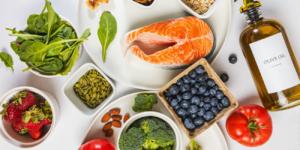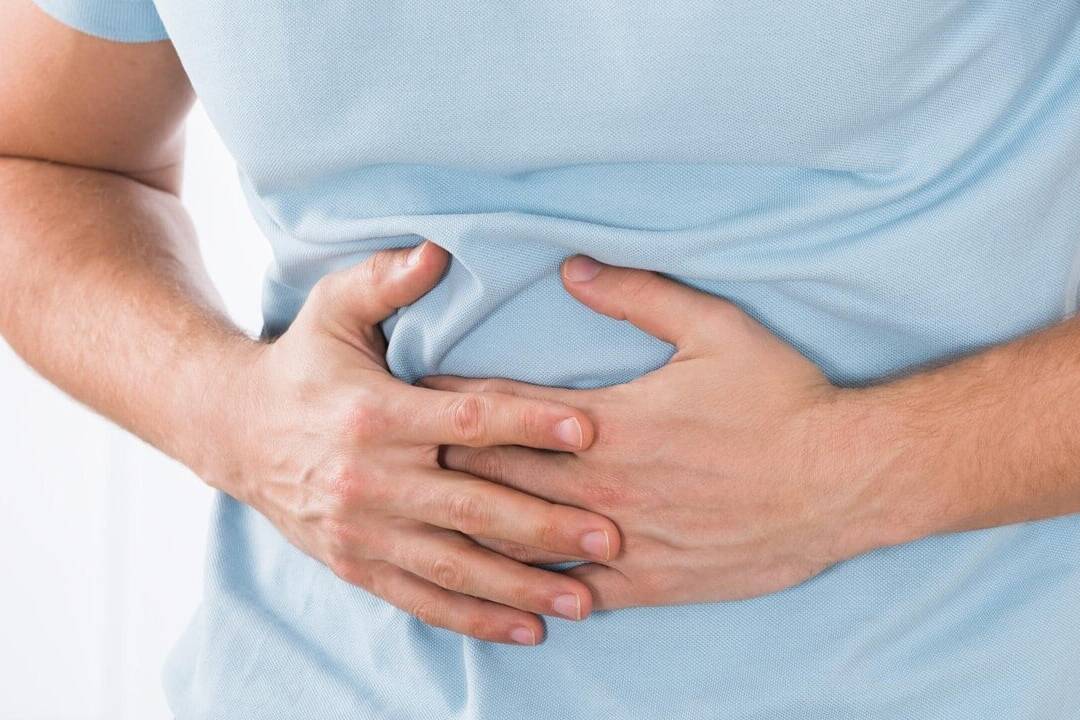Gastritis is when your stomach lining gets inflamed. You can find relief by using things like garlic extract and green tea. It’s also helpful to keep your stress under control. Sometimes, you’ll need a doctor’s help, too.
Table of Contents
ToggleGastritis happens when your stomach lining gets irritated. A common cause is Helicobacter pylori bacteria. This bacteria infects your stomach and small bowel. Heavy drinking, smoking, and stress can also cause it. Many people can improve their symptoms at home.
What is Gastritis?
Gastritis is when the stomach lining gets inflamed. Eating a diet that lowers inflammation might help over time. But, it’s not clear if a certain diet can cause or stop gastritis. Symptoms include feeling sick, throwing up, and a stomach that aches or burns. You might feel full quickly after eating. While it’s not usually serious, see a doctor if symptoms get worse or stay the same.
Understanding the Condition
Gastritis comes from an inflamed stomach lining. It can happen because of things like an H. pylori bacteria, too much alcohol, smoking, stress, or taking too much ibuprofen. You might feel discomfort or stronger symptoms like nausea, vomiting, and stomach pain.
Causes of Gastritis
An H. pylori infection is often the reason for gastritis. Over half of the world’s people have this bacteria. It can lead to treatments for gastritis. But much drinking, smoking, stress, and too many pain meds can also cause it. Figuring out and dealing with the actual cause helps to manage symptoms well.
Common Symptoms
Symptoms can include feeling sick, throwing up, and a stomach that aches or burns. You may feel full even after eating a little. Some might have bloating, burping, or stomach pain too. It’s usually not serious, but see a doctor if they stay for over a week or if you see blood in your vomit or stool.
Anti-Inflammatory Diet for Gastritis Relief

Eating to reduce inflammation might ease your gastritis. A 2020 study lists foods that can make gastritis worse. These include meats, sugary items, spicy dishes, fried foods, and alcohol. Avoiding these foods can help manage your symptoms.
Foods to Avoid
It’s smart to stay away from foods that can amp up inflammation. This means saying no to fatty, fried, and spicy meals. Cut down on sugary treats and red meat too. Don’t forget about alcohol, since it can also bother your stomach.
Inflammation-Fighting Foods
Certain foods can fight gastritis’s inflammation. Research shows broccoli sprouts and blueberries are great for this.
Talk to your doctor if gluten makes you feel bad. Going gluten-free might ease your symptoms, case reports say.
Sticking to an anti-inflammatory diet can help manage gastritis. But always tell your doctor how you feel. If things don’t get better, they can check for other issues. They’ll also help if you need medicines.
Garlic Extract: A Natural Antibacterial
Did you know over 50 percent of us have H. pylori in our stomach? This strain causes gastritis. Luckily, garlic extract can help. It kills these bacteria. You can take raw garlic and extract it to drink. Or, you can buy aged garlic extract, which might be even better.
Benefits of Garlic for H. Pylori
Eating two raw garlic cloves daily for three days cuts down bacteria in the stomach. A study with 15 patients showed this. After eating the garlic, their UBT test results got better. So, garlic helps with gastritis.
Probiotics: Promoting Gut Health
Probiotics help fight gastritis by making digestion better and encouraging regular bowel movements. They add good bacteria to your gut, which can stop Helicobacter pylori (H. pylori). This bacteria often causes gastritis around the world.
Probiotic-Rich Foods
Eating foods with probiotics, like kimchi, kombucha, and yogurt, can make your gut healthier. These foods are full of live cultures. They keep your gut’s good and bad bacteria balanced, which might lower the pain of gastritis.
Probiotic Supplements
Supplements are a handy, more intense way to get probiotics. They put lots of good bacteria in your system quickly. This can be great for fighting severe gastritis due to H. pylori. They work well with antibiotics, too, making it easier to kill off H. pylori.
Gastritis Treatment At Home
Green tea and manuka honey are great for treating gastritis at home. They have helped many people find comfort from the symptoms of gastritis.
The Power of Green Tea
Green tea with raw honey can do wonders for your stomach. A study shows that drinking it once a week can make a big difference. This drink has antioxidants and anti-inflammatory benefits. It can calm your stomach and help it heal.
Manuka Honey: A Natural Remedy
Manuka honey fights the bacteria that cause gastritis. This bacteria is called Helicobacter pylori (H. pylori). Using manuka honey is a natural way to treat this infection. For more ease, drinking warm water can also help your digestion and stomach feel better.
Essential Oils for Gastritis Management

If you’re searching for a way to help with gastritis at home, essential oils might be the answer. Some essential oils can fight H. pylori, which causes many cases of chronic gastritis. For example, lemongrass and lemon verbena oils can fight off this bacteria.
But remember not to eat these oils. They can be dangerous if swallowed. Instead, breathe them in with a diffuser, mix them with another oil, and put them on your skin. Oils like peppermint, ginger, and clove to ease gastritis symptoms.
Using essential oils can be part of your home treatment plan. But, always talk to your doctor too. They can help you find the best way to treat the problem. See a doctor if your symptoms are bad or don’t go away.
Smaller, Frequent Meals
Eating big meals full of carbs can be harsh on your tummy. This can make gastritis worse. A study in 2020 found that odd eating times might make gastritis symptoms worse. So, it’s better to eat small meals often. This can make digestion smoother and lower your gastritis symptoms.
Easing Digestive Stress
It’s better to eat small meals more often to help with gastritis. This way, you make less stomach acid. And that could help with your gastritis symptoms. It makes your stomach less irritated, easing pain and discomfort.
In a study, eating five or six small meals daily was found to help with gastritis. This can lower symptoms like stomach pain and bloating. It could even help prevent more severe gastritis issues in the future.
Lifestyle Changes for Gastritis Relief
Gastritis can increase your chance of stomach cancer, so watch what you do. Stopping smoking and cutting back on alcohol can make a big difference. It’s also wise not to take too many painkillers like aspirin or ibuprofen. They might harm your stomach over time.
Reducing Triggers
Some foods and habits make gastritis worse. A 2020 study found that meat, sweets, spicy and fried foods, and alcohol are rotten. You should figure out what makes your stomach angry and avoid those triggers. This action can help you manage your gastritis treatment at home.
Stress Management Techniques
Stress can kick up your gastritis symptoms, too. Trying meditation, yoga, or deep breathing can calm your stomach. This approach helps with treatments and makes you feel better overall. So, dealing with stress is key when it comes to your chronic gastritis symptoms.
When to Seek Medical Attention
If you’ve tried home remedies for your gastritis but the symptoms carry on for over a week, you must see a doctor. Any vomiting of blood or finding blood in your stool is very serious. It’s crucial to contact your doctor immediately in these cases.
Persistent or Severe Symptoms
Signs like continuous nausea, uncontrollable vomiting, or very painful tummy issues may point to a severe problem. Doctors might prescribe H2 blockers, PPIs, or antibiotics based on what caused your gastritis.
Don’t try to handle these big symptoms on your own. Quick medical help is critical to getting the proper treatment and avoiding future problems. Your doctor will guide you on how to treat and get better from gastritis.
Conclusion
Finding the right home remedies and lifestyle changes to deal with gastritis symptoms is important. Home treatments are a good start, but see a doctor if symptoms persist or worsen. They can help you identify what’s causing your gastritis and offer the proper care.
Gastritis treatment at home can work, but sometimes, you need a healthcare professional. If you have chronic gastritis or if your symptoms stay bad, more help might be required. You’ll manage this condition by choosing the best treatments for gastritis and being active in your healthcare.
Always watch your gastritis symptoms and get help from a doctor when needed. Your digestive health will improve with the right mix of home care, lifestyle changes, and medical advice. You’ll be on your way to a healthier, happier life.
FAQ
What is gastritis?
Gastritis is inflammation in the stomach lining. This can be from Helicobacter pylori bacteria or by drinking too much alcohol. Smoking, stress, and overusing pain relievers also play a part.
What are the symptoms of gastritis?
The symptoms include feeling sick, throwing up, and burning your stomach. You might feel full after eating just a little.
Can diet help manage gastritis symptoms?
Eating foods that reduce inflammation can help with time. Stay away from meats, sugars, spices, and fried stuff. Also, limit alcohol. Including broccoli sprouts and fresh blueberries can be good. If needed, try a gluten-free diet.
How can garlic extract help with gastritis?
Garlic extract can kill the H. pylori bacteria, a major cause of gastritis. You can take garlic extract by mouth or get aged garlic extract, which might work better.
How can probiotics benefit gastritis?
Probiotics are good for your gut. They can help stop H. pylori from spreading and make you feel better. Eating or taking supplements like kimchi, kombucha, and yogurt is helpful.
What are the benefits of green tea and honey for gastritis?
They have shown some promise in helping to treat gastritis. Drinking tea with honey has benefitted some who tried it. Manuka honey is known to fight bad bacteria well.
Can essential oils help manage gastritis?
Some oils like lemongrass have helped mice resist H. pylori in studies. Yet, oils are not for eating because some are toxic. Use them with a carrier oil or breathe them in carefully.
How can smaller, more frequent meals help with gastritis?
Big meals with lots of carbs can worsen gastritis. Instead, eat small meals often during the day. This can make digesting easier and help with symptoms.
What lifestyle changes can help manage gastritis?
Quitting smoking and cutting down on alcohol are important. So is using pain meds wisely. Less stress through activities like yoga can also make a big difference.
When should you seek medical attention for gastritis?
If your gastritis gets bad and lasts over a week, or if you see blood in your vomit or stool, call your doctor. They might give you particular medicines to help.
About The Author

Medically reviewed by Dr. Nivedita Pandey, MD, DM (Gastroenterology)
Senior Gastroenterologist & Hepatologist
Dr. Nivedita Pandey is a U.S.-trained gastroenterologist and hepatologist with extensive experience in diagnosing and treating liver diseases and gastrointestinal disorders. She specializes in liver enzyme abnormalities, fatty liver disease, hepatitis, cirrhosis, and digestive health.
All content is reviewed for medical accuracy and aligned with current clinical guidelines.
About Author | Instagram | Linkedin





